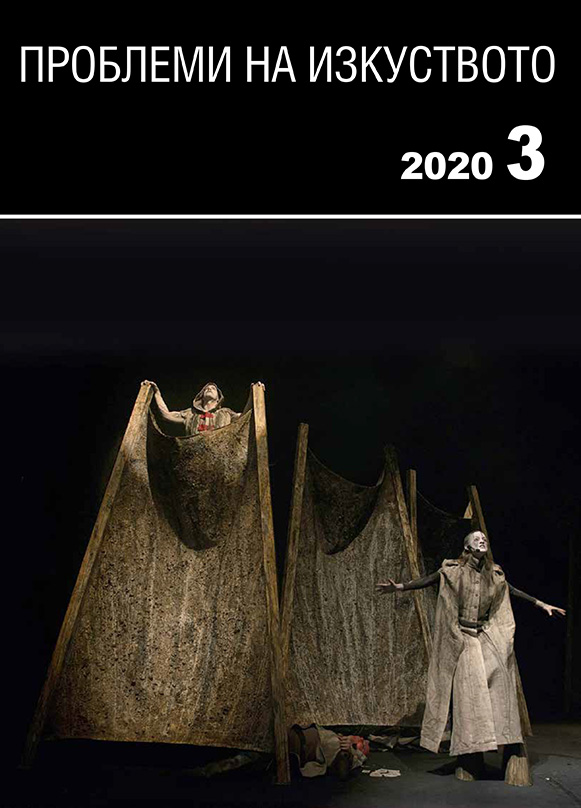Драмата „Самодива” на Петко Ю. Тодоров
PETKO Y. TODOROV’S DRAMA THE FAIRY
Author(s): Romeo PopilievSubject(s): Theatre, Dance, Performing Arts, Fine Arts / Performing Arts, History of Art
Published by: Институт за изследване на изкуствата, Българска академия на науките
Summary/Abstract: Petko Y. Todorov (1879-1916) was among the first Bulgarian writers and playwrights, who introduced mythological figures in both his idylls and dramas The Fairy and The Dragon’s Wedding. Yet, he did much more than that. This article deals with The Fairy (1904), one of the earliest Bulgarian plays or maybe even the earliest owing to which we successfully fitted into the modern European playwrighting. In the opening, a brief overview is provided of the Bulgarian (Balkan, etc) mythological ideas of the fairies, who, with their various names, are among the most famous migrating figures in the world mythology. In fact, of the collective and traditional way of life of all Petko Todorov’s characters individualists, Giurga The Fairy is undoubtedly the most collaborative and tolerant and the most resistant to and independent of it at the same time. Holidays and weekends make no difference to her: everything has to be done with easiness and feeling of happiness. The idea of the Fairy is to eliminate joy-work/youth-old age/holiday-workday/love-marriage oppositions, to blur the distinction between up and down (the mountain and the plain), between the individual and the community. Giurga The Fairy is the first free woman in Bulgarian literature, a specific replica of Ibsen’s Nora. Giurga’s free nonmaterial impulse breaks the mournful frame of The Fairy’s storyline, which encloses the earthly life of shepherd Stilian, gradually sinking under the burden of the material, which seems quite symbolist. Important also is the organisational role of the rhythm for it is rhythm that supplements and shapes its meaning as is especially with the plays by Maeterlinck and Chekhov. This play can be defined as ‘a drama of mood’ or ‘of expectation’, or ‘of the everyday tragic’ and Bulgarian playwriting saw its new, modern development in it. The article depicts the fate befallen this play.
Journal: Проблеми на изкуството
- Issue Year: 2020
- Issue No: 3
- Page Range: 35-41
- Page Count: 7
- Language: Bulgarian
- Content File-PDF

